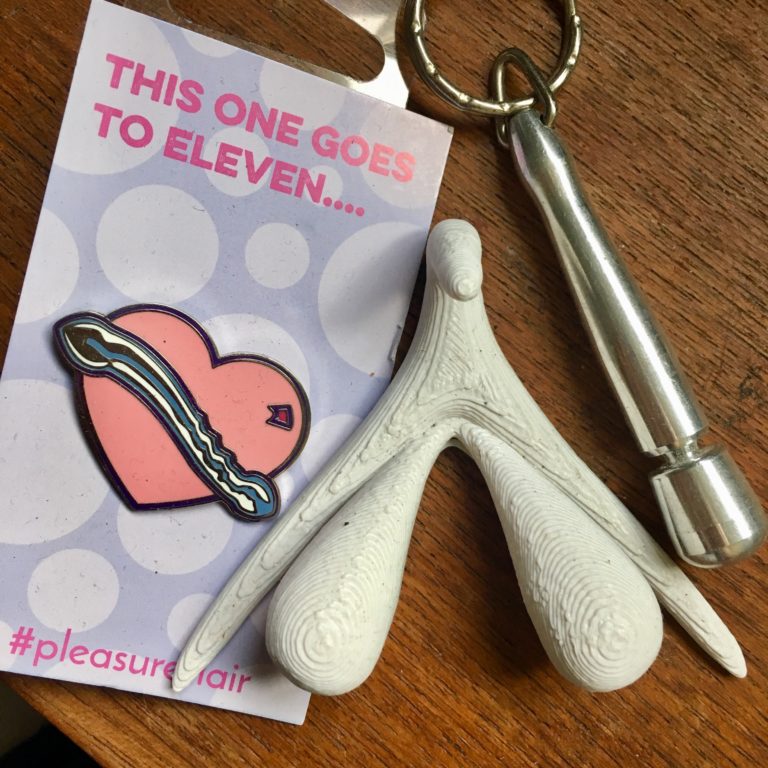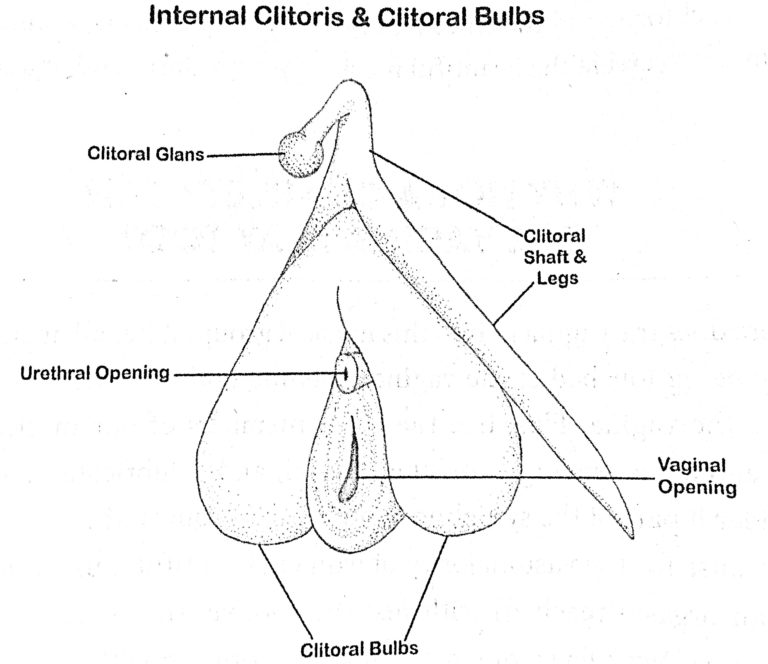
It comes out of nowhere. I’m never expecting it. Why would I?
A reference to lube? In a mainstream piece of media? Really? Are you sure?
This time, it’s the character Lily on my favorite show of the moment, Netflix’s Sex Education. “I’ll bring the condoms,” she says, while negotiating an upcoming sex-date. “You bring the lube.”
There are a lot of parts of the queer, kinky, asexual-spectrum experience that are not represented accurately, or at all, in media depictions – so I’m not exactly surprised when on-screen sex has little in common with my real-life encounters. But lube seems like such an amazingly basic thing to leave out of fictional sex altogether. It would be like if an entire cinematic universe flat-out refused to acknowledge condoms exist (which, I suppose I should note, the mainstream porn “cinematic universe” often seems to do). It is not only inaccurate to many people’s experience of sex, but also irresponsible – because anyone learning about sex should simultaneously learn about lube.
It should show up in so many movies, books, shows, podcasts, and magazines we’ve consumed by the time we become sexually active that we add it to our carts when we drop by the drugstore to pick up condoms – a no-brainer. Its usage should be one of the standard pieces of advice we give to every teenager in sex ed classes and “the talk.” Doctors should bring it up alongside birth control when counseling soon-to-be-no-longer-virgins.
I argue this, in part, because I myself didn’t discover the wonders of lube until I was about 19. Sure, I’d read about it in the occasional erotica story or informative article, and had heard folks discussing it on the Sex is Fun podcast, but somehow I assumed that someone like me didn’t need to worry about it. I got plenty wet enough on my own, thank you very much.
But then I started reading sex blogs, and I noticed the fervor with which some of my favorite bloggers used lube every single time they masturbated or had sex. I bought a bottle of my own (water-based, IMO the best kind for beginners because of its versatility) and started using it religiously. And it, indeed, changed my life.
With the addition of a good lubricant, bad sex got better, and good sex became amazing. Masturbation was easier, and I did it more often because I no longer had to wait for my body to get all the way turned on before sliding a dildo inside me. It even worked well for external stimulation – I experimented with using it on my clit, labia, and nipples, and found it was far preferable to my previous “lube” of choice, spit. The clouds parted and angels sang upon my genitals.
This has been an overall theme in my process of learning about sex: even though (as a budding sex nerd) I always knew way more about this stuff than my peers did while I was growing up, it’s often been the simplest lessons that took me the longest to learn, and that I had to push myself the hardest to absorb. I was hesitant, for example, to touch my own clit during intercourse even though I knew it would feel good, I was initially scared to give handjobs or blowjobs because I worried being bad at them was a breakup-worthy offence, and somehow I didn’t realize just how much a good lube could improve my sex life until I tried one. Oh well – better late than never.
One of my big takeaways from this experience is that, as I said, we need to incorporate lube into more sex ed curricula and media. It would make people who don’t self-lubricate “enough” feel less broken, and people who have sex involving non-self-lubricating holes (including many queer and trans people) safer and more comfortable. It would go beyond the dry (no pun intended), safety-focused information so often given to teens and would teach them about pleasure – because as far as I’m concerned, additional pleasure is the main benefit of using lube. Maybe that’s why it’s so rarely talked about in comparison to condoms and birth control.
Kudos to Sex Education, not only for mentioning lube several times (including in a memorable scene where our sex-genius heroine Jean advises a young gay boy that water-based lube is the best choice for anal sex), but for mentioning it in the context of pleasure. Sex advice shouldn’t make sex seem scary or intimidating – and I really feel that spreading the good word about lube can go a long way toward diminishing sexual shame and raising the overall global quotient of sexual pleasure.
Thanks so much to the lovely folks at Promescent for sponsoring this post! They have a new collection of lubricants out, including a water-based one, a silicone-based one, an organic aloe-based one, and a peppermint-infused arousal gel.


